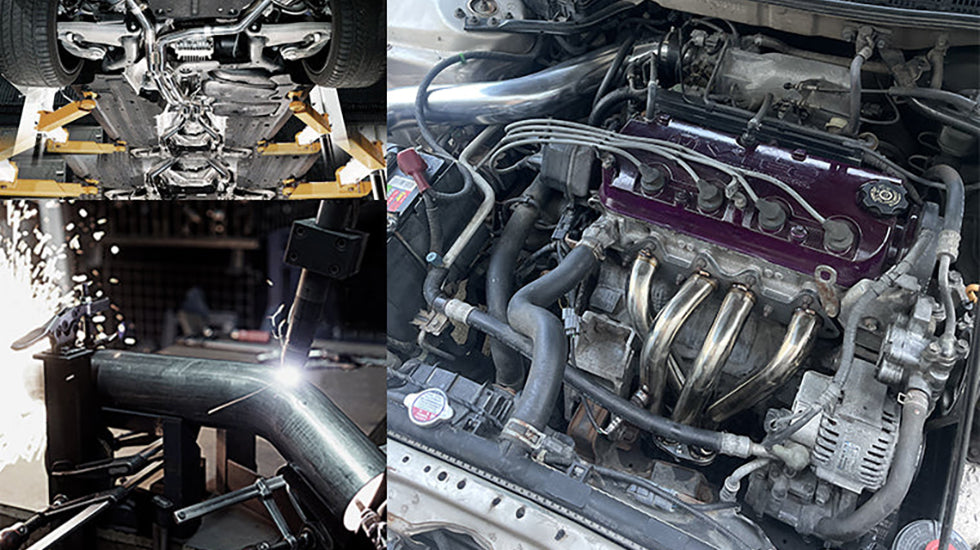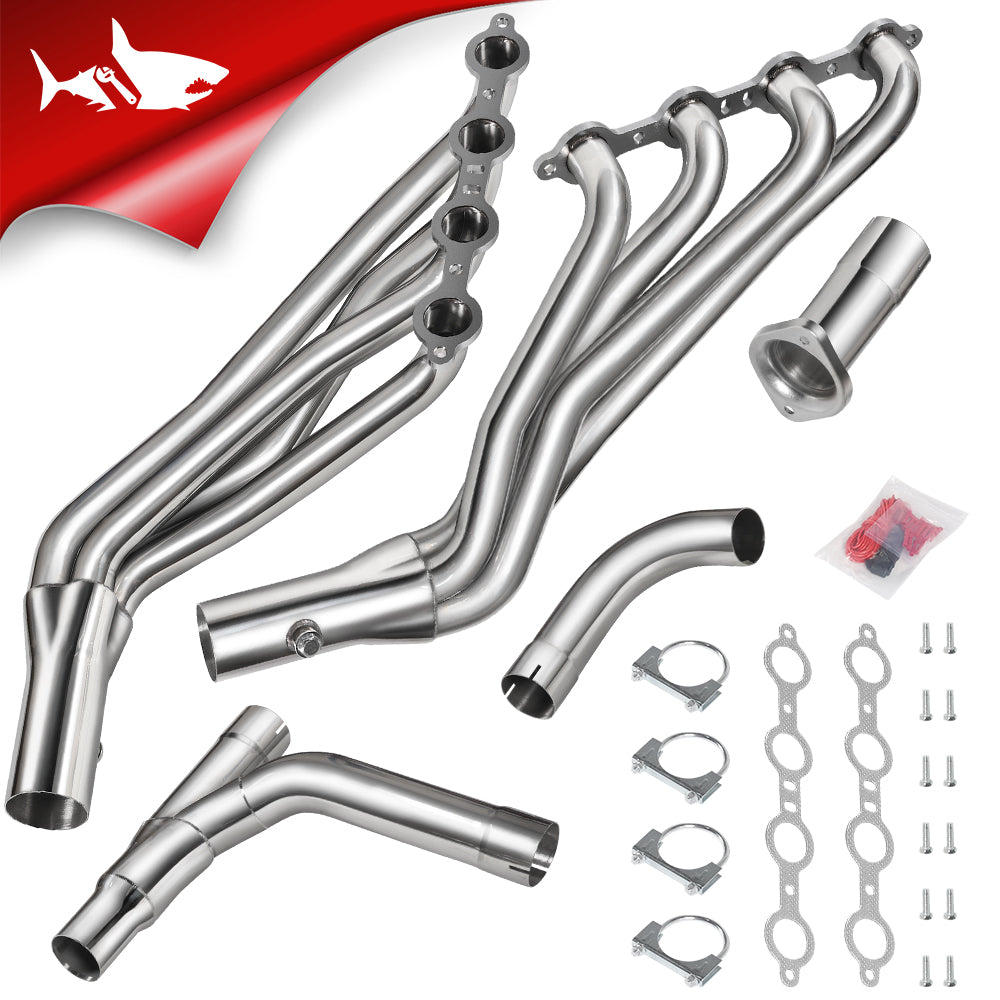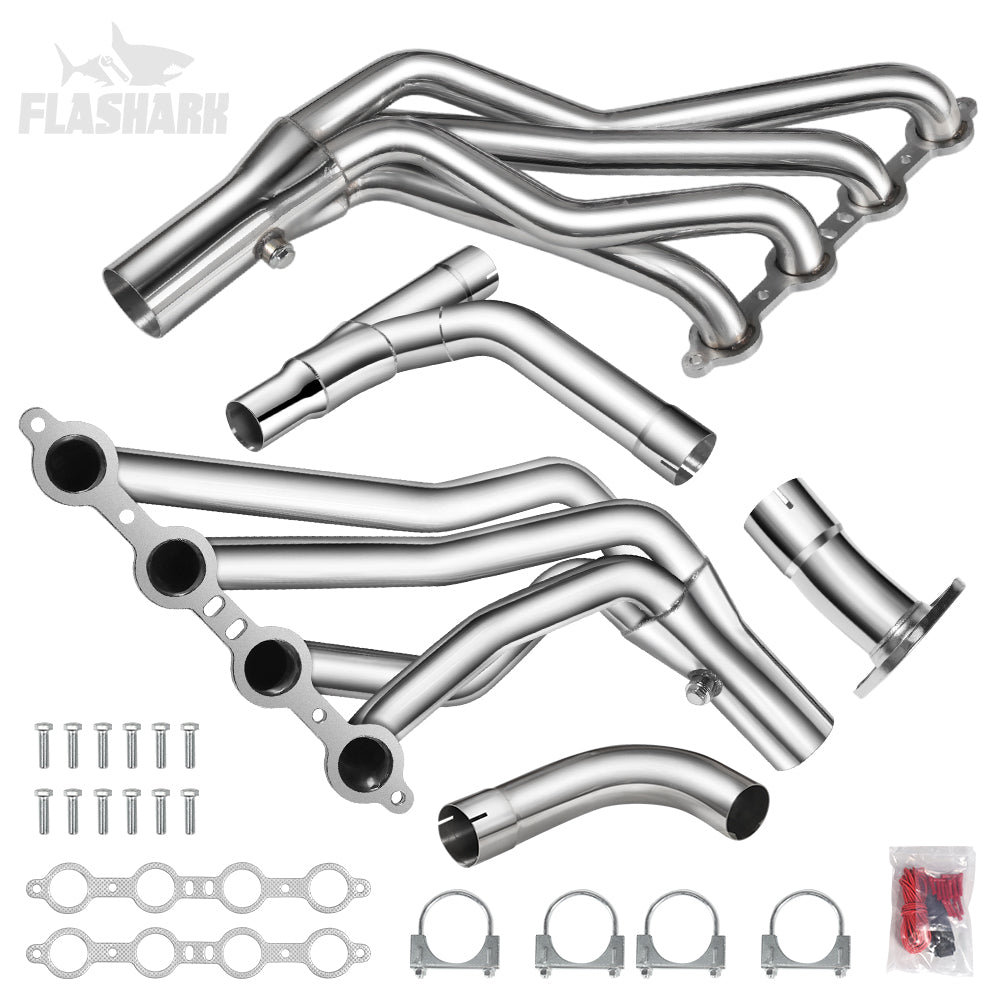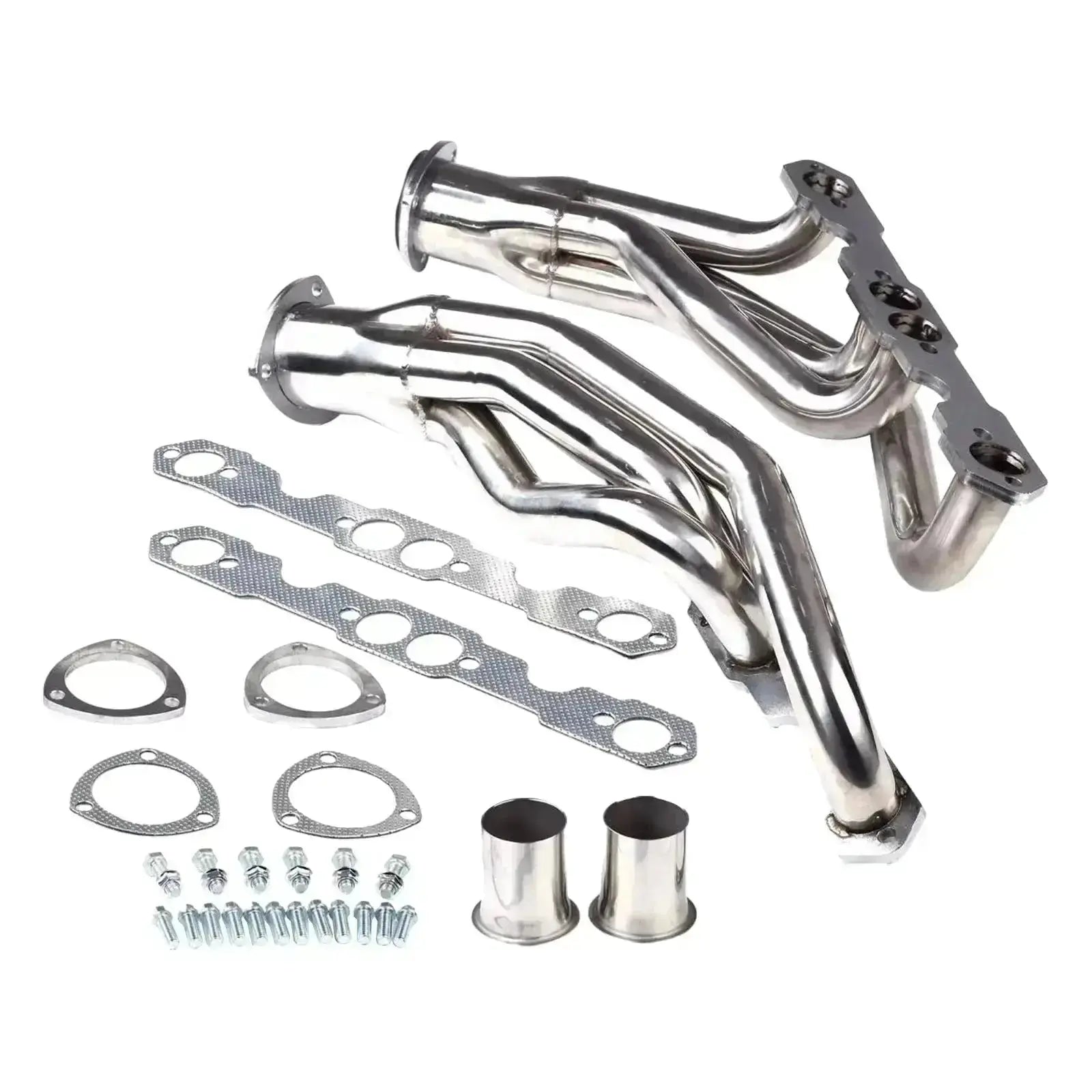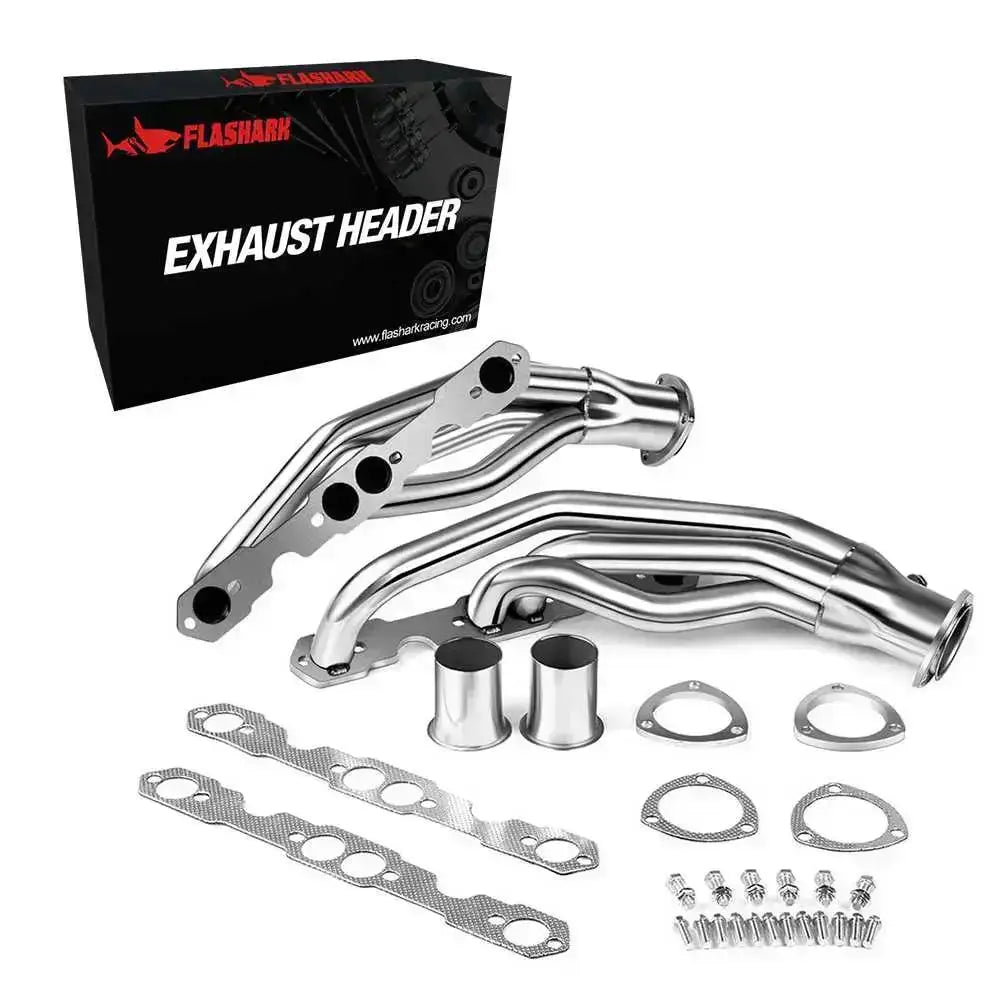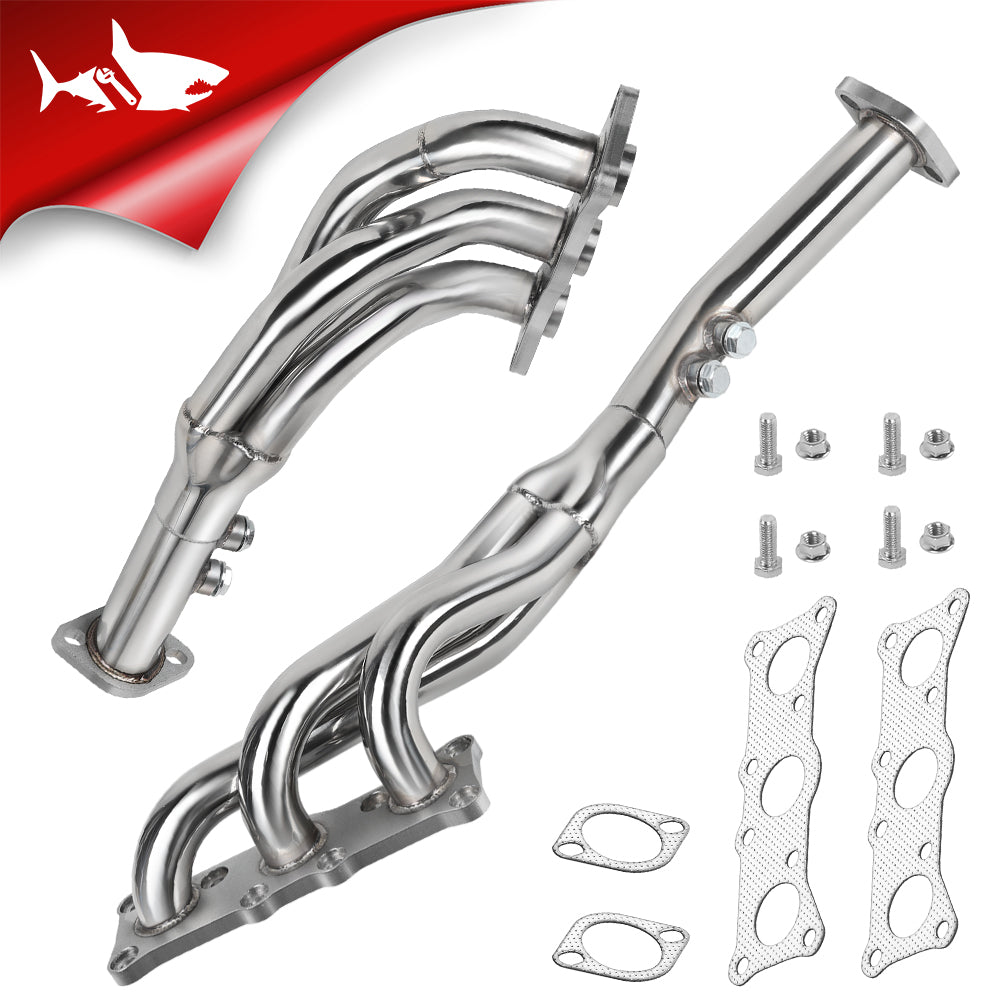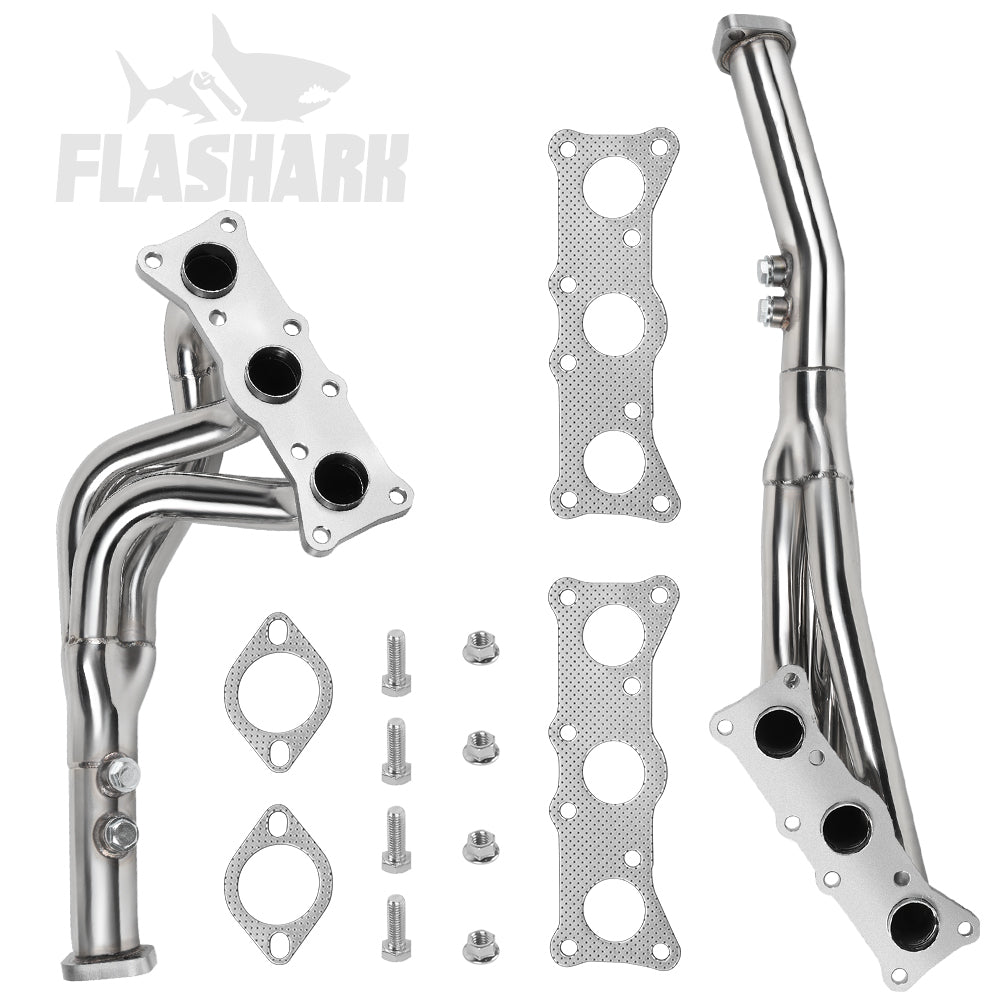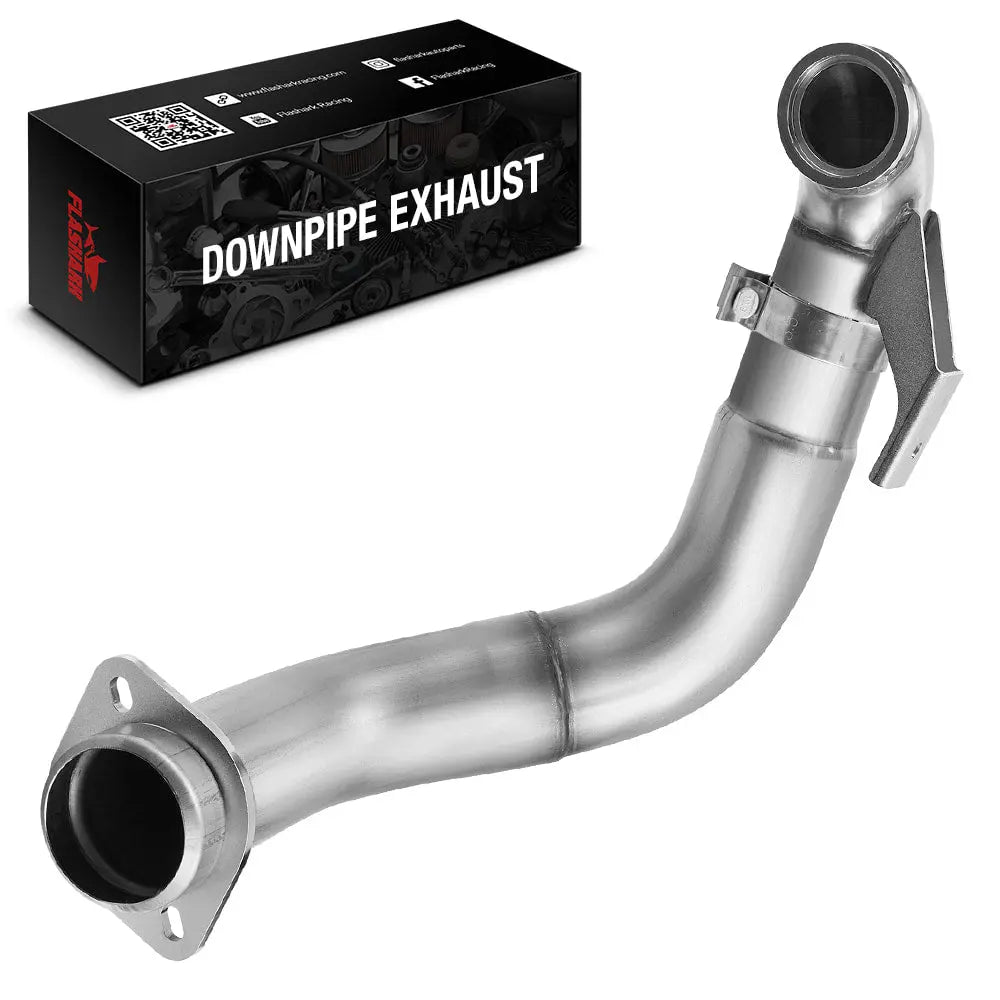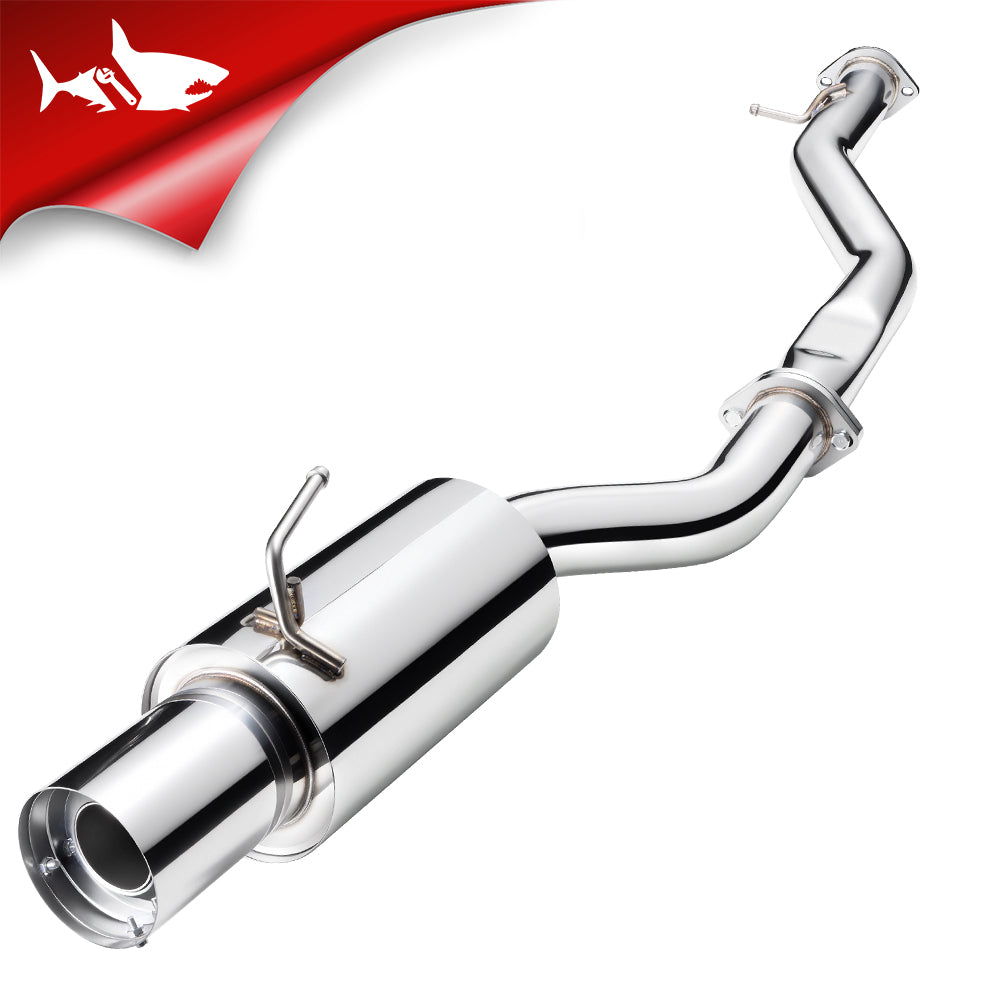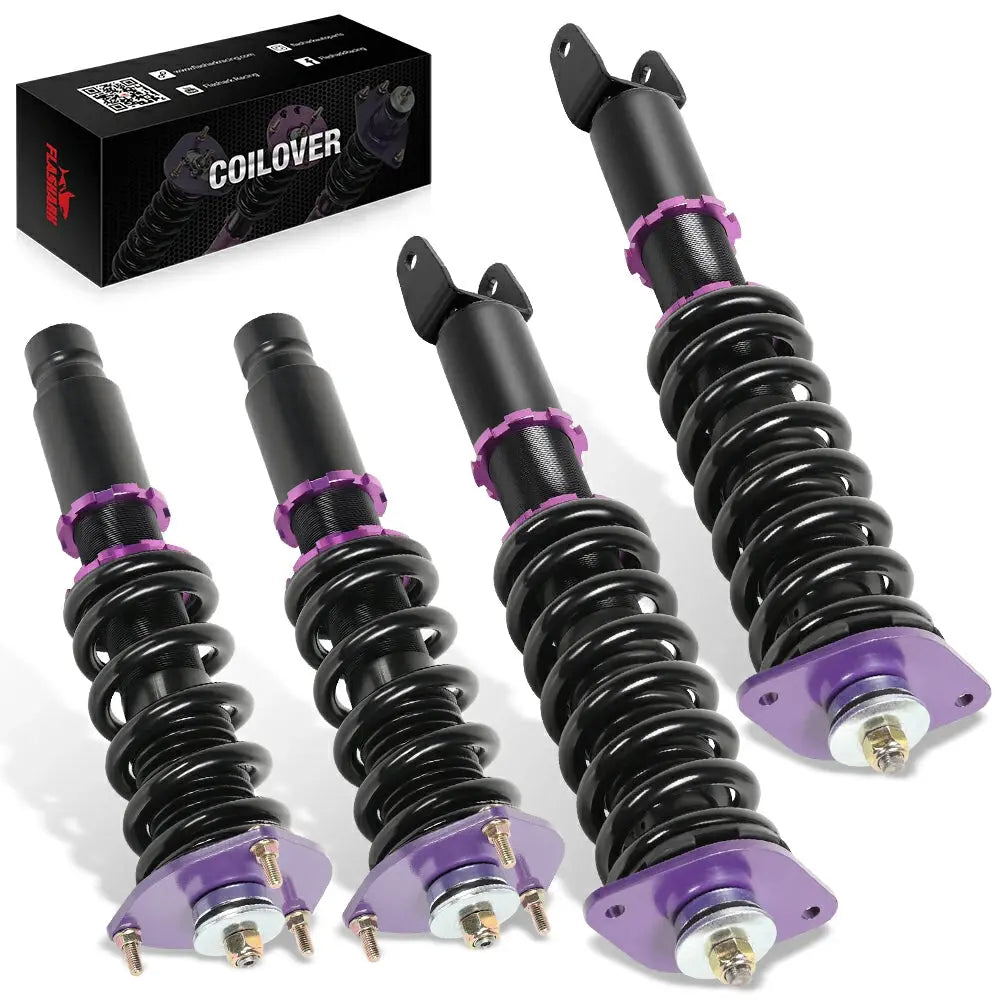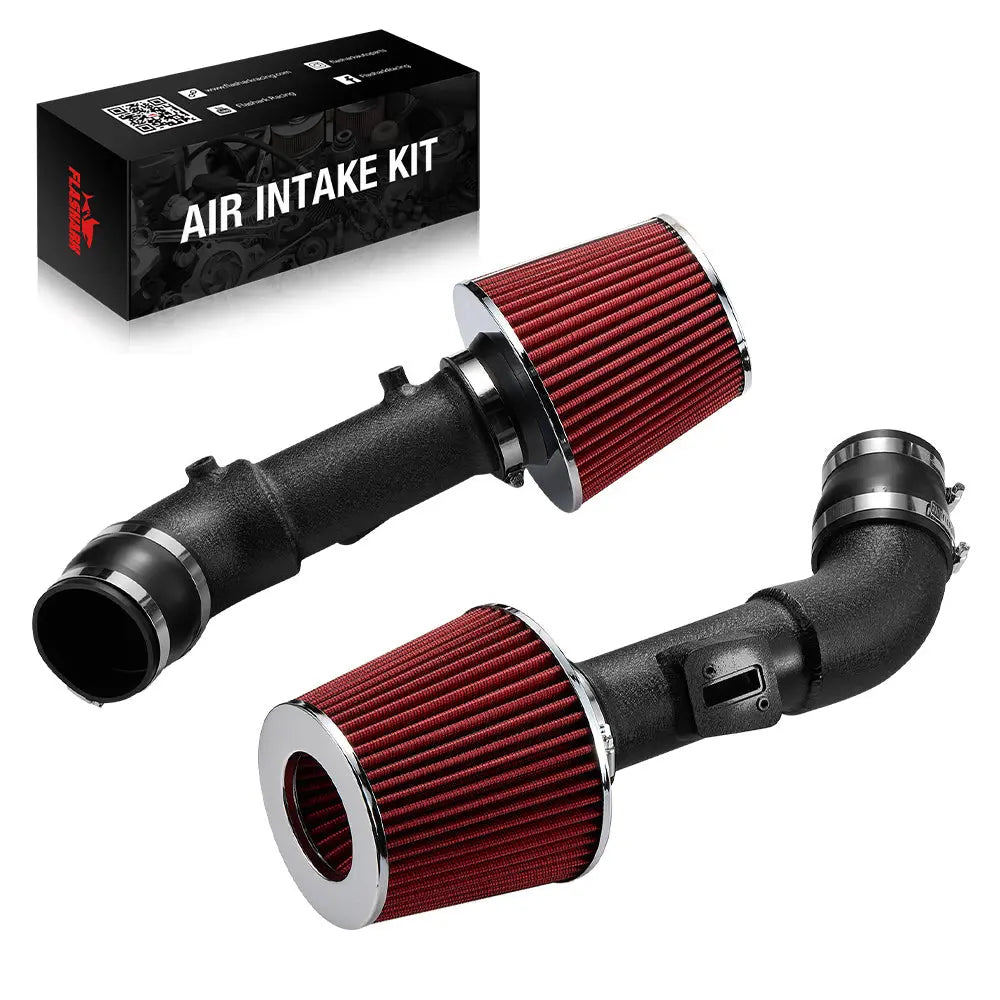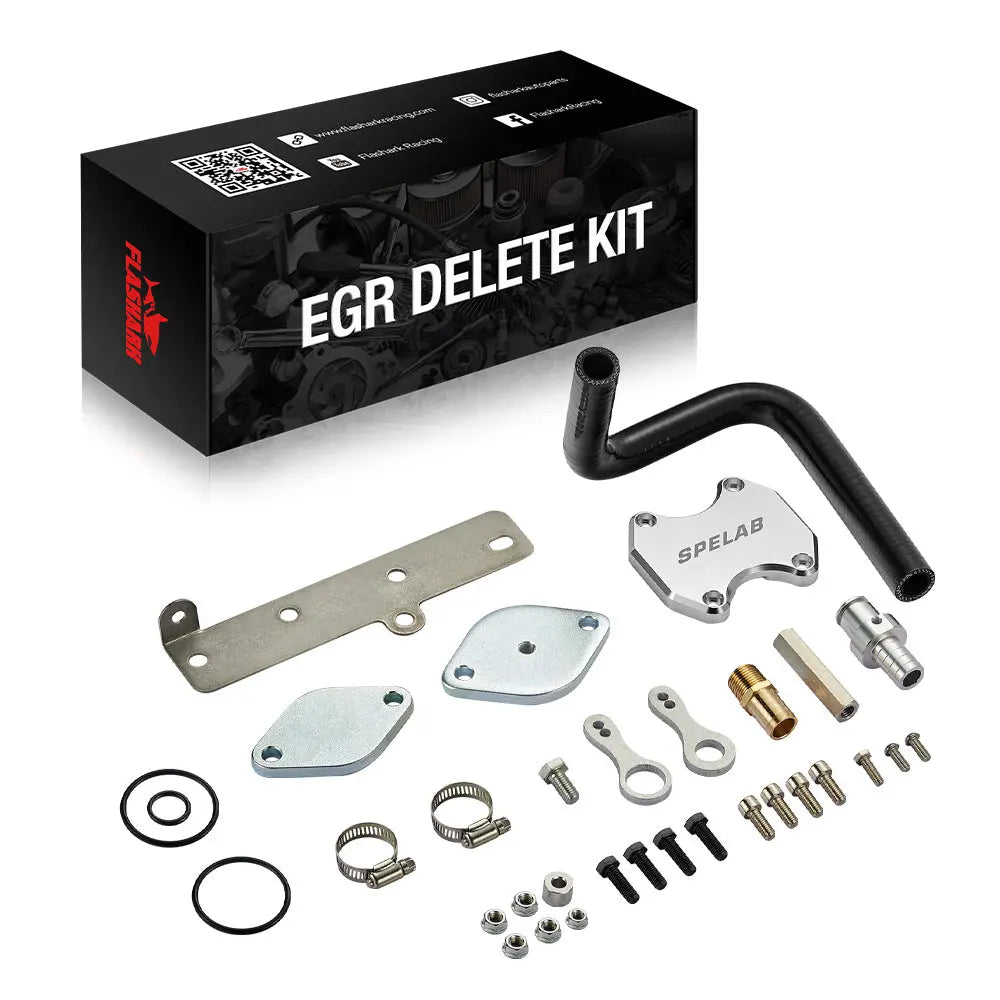Do headers replace the exhaust manifold?
Yes — headers are performance-enhancing components designed to replace your car’s stock exhaust manifold. While factory exhaust manifolds are focused on cost and emissions control, headers are engineered to improve airflow and boost engine performance. If you’re looking to extract more power from your vehicle — whether it’s a 1998 Honda Accord or a 1990s Nissan Hardbody — understanding the difference between manifolds and headers is the first step toward a worthwhile upgrade.
What Does an Exhaust Manifold Do?
Every combustion engine generates hot exhaust gases after burning fuel. These gases need to be safely directed away from the engine, and that’s exactly what the exhaust manifold does.

The exhaust manifold is a metal part, typically made from cast iron or stainless steel, that bolts directly to the engine’s cylinder head. It collects exhaust gases from each cylinder and channels them into one pipe, directing them into the rest of the exhaust system.
The problem? Stock manifolds are often heavy, restrictive, and designed with emissions in mind — not performance.
Backpressure: The Hidden Performance Killer
A major limitation of stock exhaust manifolds is backpressure. Due to narrow passages and rough castings, exhaust gases meet resistance as they exit the engine. This is similar to trying to exhale through a straw — the harder you try, the more resistance you feel.
This backpressure restricts engine breathing, reducing overall power output and throttle response.
Headers: A Better Replacement for the Exhaust Manifold
Headers are built to solve the airflow problem. Instead of a single cast unit, headers are made from separate, smoother tubes for each cylinder that merge into a collector. This design eliminates much of the backpressure created by stock manifolds.

Key benefits of replacing your exhaust manifold with headers:
- Reduced backpressure = more efficient exhaust flow
- Improved horsepower and torque
- Better throttle response
- Potential fuel efficiency gains
- A throatier, more aggressive exhaust note
In short, headers are a direct performance upgrade and a full replacement for the factory manifold.
Real-World Performance Gains
Whether you're chasing a mild performance boost or building a more aggressive machine, headers deliver real improvements. Here’s what you can expect:
- Increased Horsepower: Especially noticeable in mid-to-high RPM ranges.
- Better Acceleration: Reduced restriction means faster engine breathing.
- Stronger Torque: Ideal for towing, hauling, or quick takeoffs.
- More Engaging Sound: A deeper, sportier exhaust tone.
Do Headers Change Your Exhaust Sound?
Yes, headers can alter your vehicle's exhaust tone. Because they improve exhaust flow and reduce restriction, the result is often a deeper, throatier sound — especially under acceleration.
However, the final exhaust note depends on your full exhaust setup, including the catalytic converter, muffler, and resonator. If you’re after a more aggressive tone, headers are a great place to start.
Top Header Recommendations
Here are two trusted header options from Flashark Racing for popular vehicles:
1. 1998-2002 Honda Accord 4-2-1 Headers
Unleash the hidden potential of your Honda Accord headers with our performance-enhancing 4-2-1 headers. These headers feature a design that optimizes exhaust flow, a key factor in engine performance. Smoother bends and larger diameter tubes allow exhaust gases to escape more efficiently, reducing backpressure and restriction. Experience a noticeable increase in horsepower and torque, giving your Accord the extra pep it needs.
1998-2002 Honda Accord 4-2-1 Headers
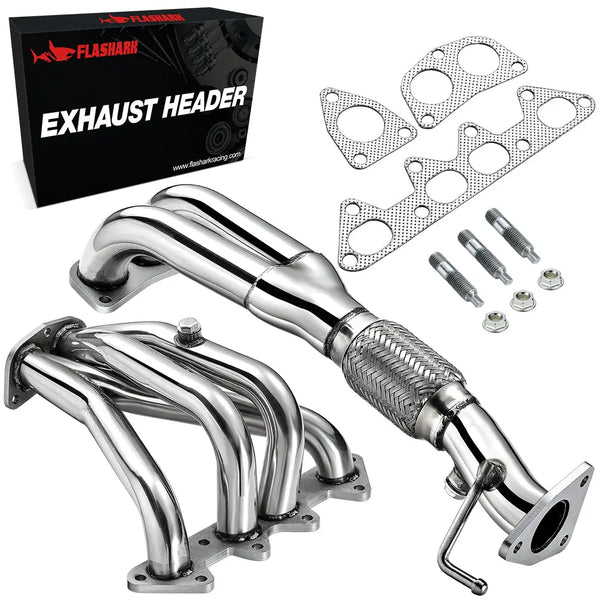
2. 1990-1995 Nissan Hardbody 2.4L Headers
You can enhance the performance of your Nissan Hardbody headers with this direct bolt-on header. By replacing the restrictive factory exhaust manifold with this header, you can unlock hidden power due to its larger diameter tubes and smoother bends. This improved exhaust flow results in a significant increase in horsepower and torque, providing exhilarating acceleration and improved performance on challenging road conditions. Your Hardbody will be more responsive, making every drive more enjoyable.
1990-1995 Nissan Hardbody 2.4L Headers

Aural Impact
Installing headers can alter your car’s exhaust sound. Because they typically allow for smoother exhaust flow, headers can potentially create a more noticeable exhaust note. This doesn’t necessarily mean a negative change, it could be a deeper, sportier sound that some enthusiasts prefer. Predicting the exact change in sound is difficult, however, because exhaust systems are complex. The final sound depends on several factors, including the specific design of the headers and your existing exhaust system components.
DIY or Professional?
Installing a header is a complex task that requires accessing and maneuvering around tight spaces in your car’s engine bay. However, doing it yourself may be challenging for inexperienced persons. Disassembling the exhaust system involves removing various components. You will need to fight rust, corrosion, and cramped quarters. During this procedure, you will be required to keep track of numerous parts and fasteners. Alternatively, if you are an expert with such installation and have a good understanding of your car’s engine system, go for the DIY method. Brands usually provide step-by-step instructions for easy installation. However, try getting the required tools kit and workspace, before considering a DIY installation.

Before You Upgrade: What to Consider
- Fitment: Ensure the headers are compatible with your car’s make, model, engine size, and year.
- Emissions Regulations: Some regions (like California) have strict laws about aftermarket exhausts.
- Heat Management: Headers can get hotter than manifolds — consider ceramic coating or exhaust wrap.
- Tuning Requirements: Some vehicles may benefit from an ECU tune after installing headers to fully maximize gains.
Final Thoughts: Are Headers Worth It?
Absolutely. If you're looking for a proven way to boost your car’s performance and enjoy a more responsive driving experience, replacing your exhaust manifold with headers makes total sense. Headers are one of the best bolt-on upgrades you can make — and the benefits speak for themselves.

